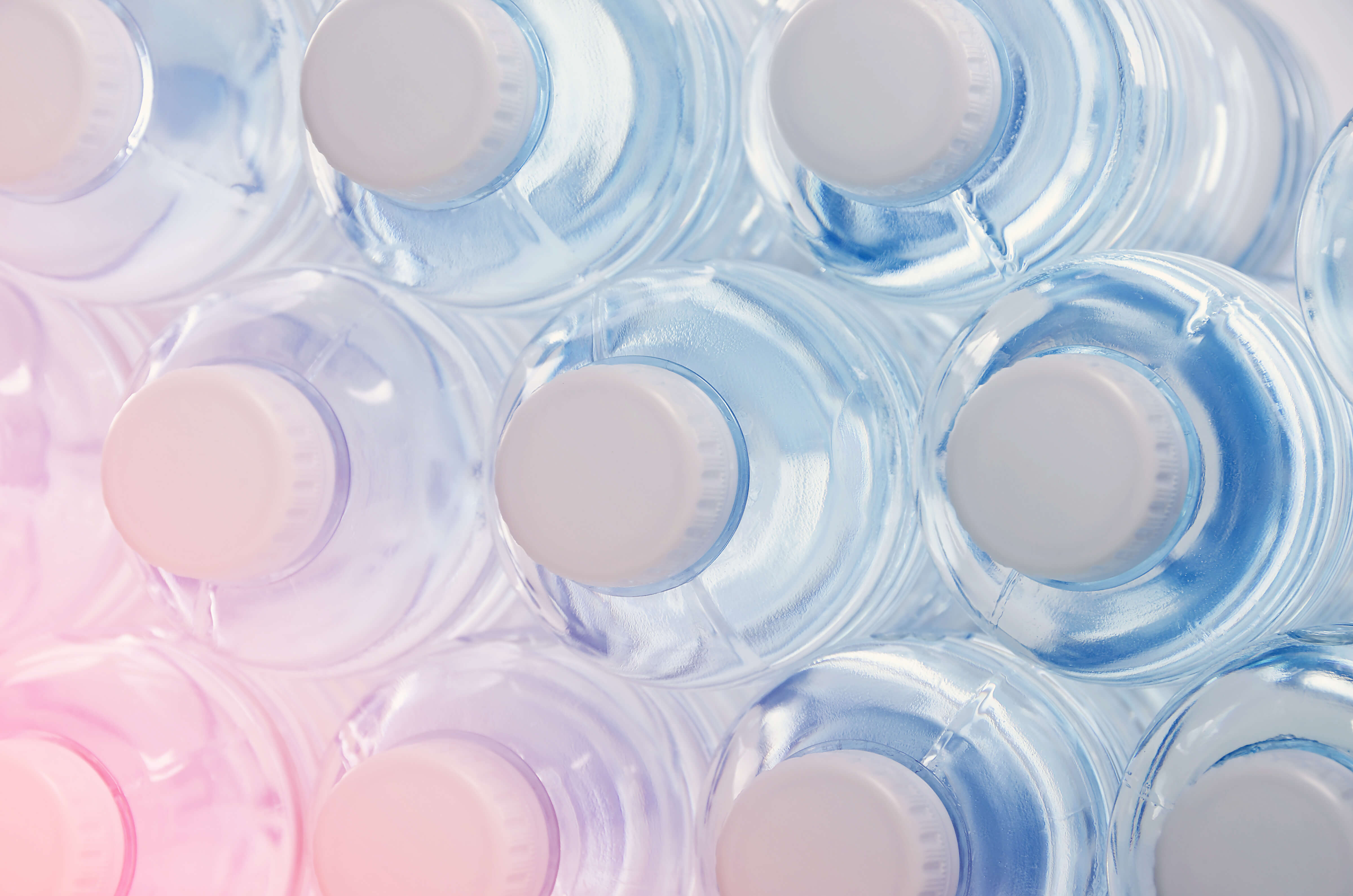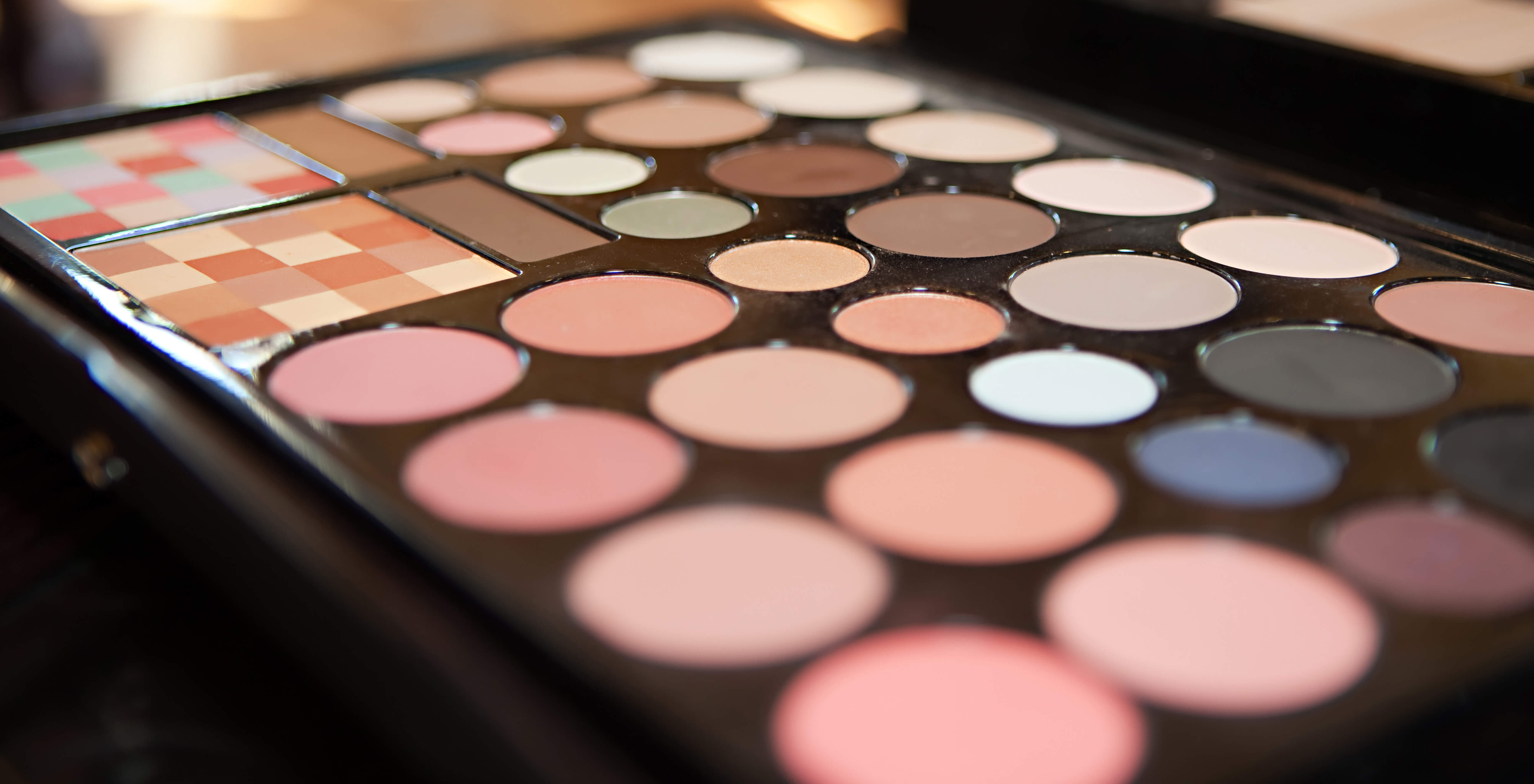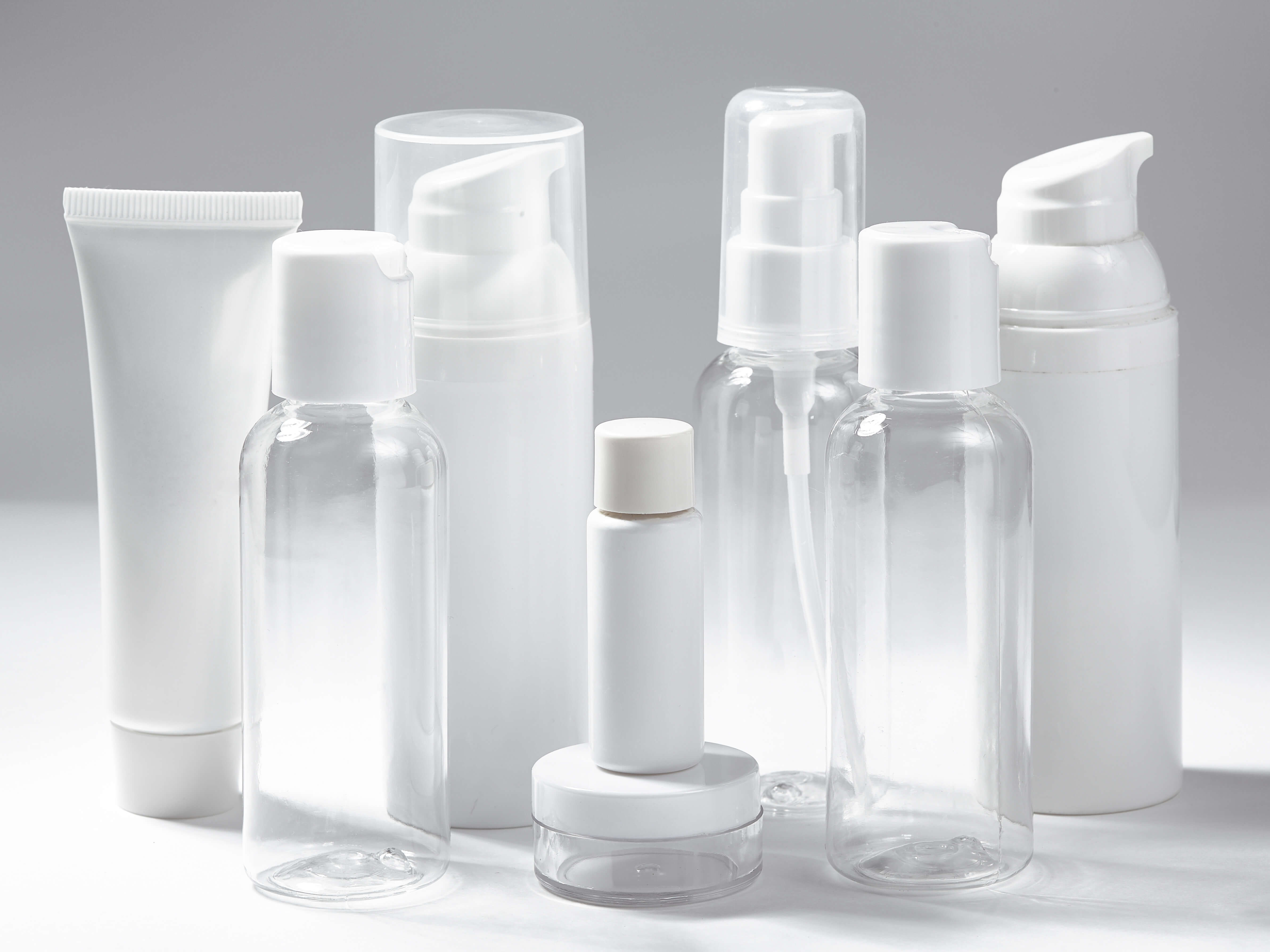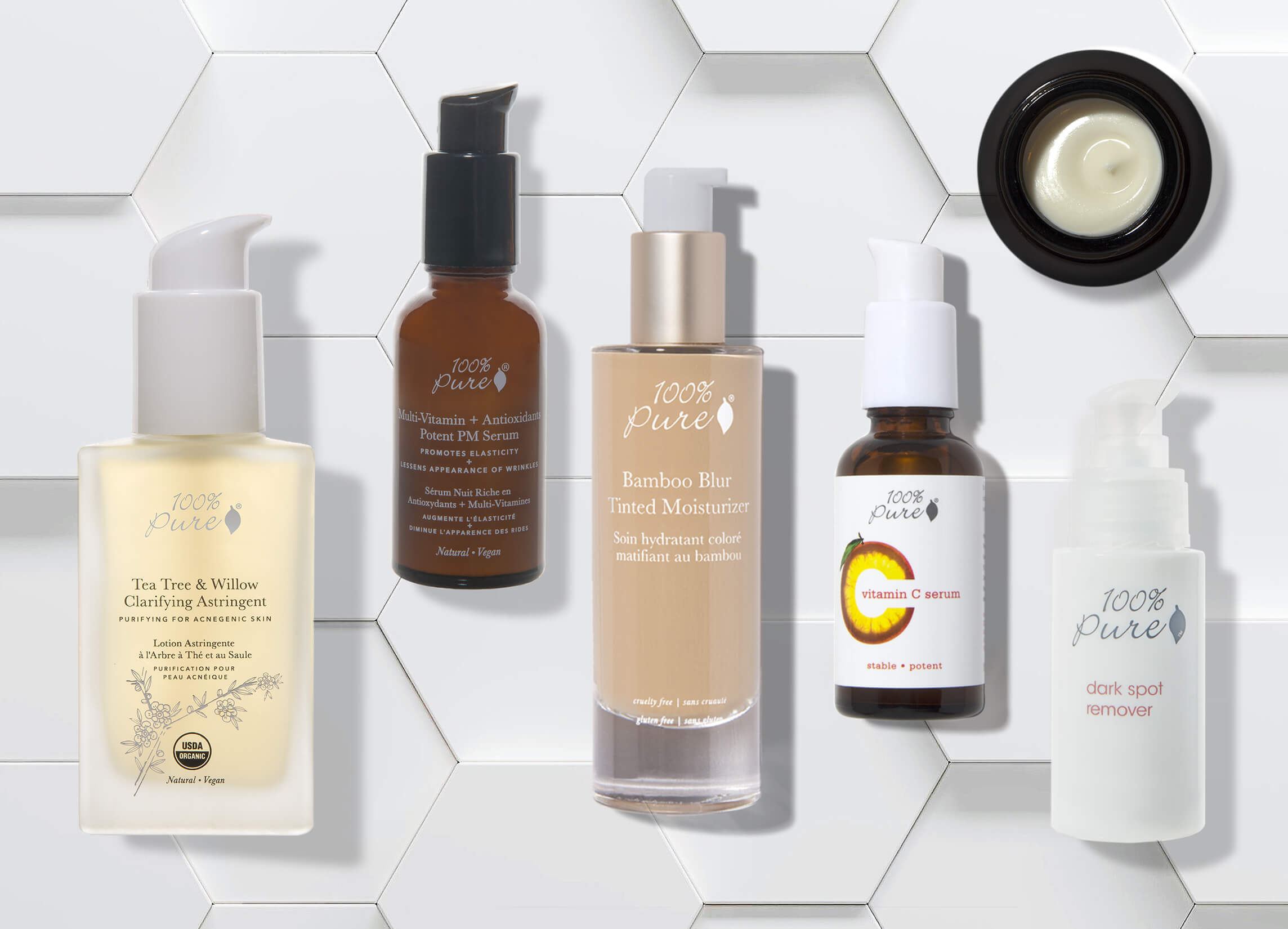How to stop them from sneaking into your skin care
Chances are, you’ve already graduated from disposable plastic water bottles to a reusable version. Maybe it’s one of those ultra sleek metal numbers, or something made of glass with an infuser for spa-water-on-the-go (if your life is truly on track). The point is, most of us have stopped using and reusing plastic bottles, because we’ve all seen the research showing that toxins present in plastic have adverse health effects. The chemicals that “plasticize” plastic – that is, give it its characteristic flexible-yet-sturdy texture – are toxic and hormone disrupting, which in turn means that they’re potentially carcinogenic. These plastics can leach into water (and personal care products) over time, leading to accumulated levels in the body and dangerous effects on the endocrine system. So if you’ve nixed plastic from your drinking vessel of choice, give yourself a pat on the back.
But don’t plug your ears to the ‘plastics’ conversation just yet. It’s not just where you drink your water from that you should be considering – the plastic used to package your skin care and cosmetics is also a potential health risk, and should most definitely enter into the equation when you’re trying to determine how skin-friendly a product really is.

In particular, two primary chemicals used in plastic packaging of cosmetics – BPA and phthalates – are the proven sources of a host of adverse health effects, ranging from infertility to prostate cancer. The plastic-is-dangerous dialogue has largely centered around water bottles, but BPA and phthalates can seep into skin if they’re present in cosmetic and skincare packaging. There are a number of plastic-related risks that come with synthetic cosmetic tubes and bottles, and it’s important to know what you're buying, and whether or not you really want to be slathering it on your face. We’re approaching the plastic conversation with your makeup bag in mind, taking a closer look at risks and alternatives. Now take a swig off your ultra-chic metal canteen, and let’s dive in.
The Problem with Plastics
Conventional plastic packaging for cosmetics usually contains one of two chemicals: Polyvinyl chloride plastics (PVC), which contain phthalates, or polycarbonate plastics, which contain a chemical called bisphenol-A (BPA). Both phthalates and BPA are known hormone disruptors, meaning that when they enter into the bloodstream, they interact with and alter hormone related processes in the body. Specifically, research indicates that these two chemicals act as xenoestrogens. Like hormone-based birth controls, they mimic the effects of estrogen in the body, leading to potentially unwanted weight gain, hormonal imbalance, compromised thyroid functioning, and skin issues. What this all mean? That even if the serum you’re using has top-of-the-line ingredients promising to tighten and brighten, it’s possible that the packaging is actually pumping the brakes on your quest for maximum skin health by throwing off your estrogen and testosterone balance

In the particular case of plastic cosmetic packaging, there’s a high risk of phthalates and BPA leaching into the product over time. Why? Because cosmetics contain oils and solvents that can quickly compromise the integrity of plastic. In other words, cosmetics contain a variety of ingredients – oils, alcohols, and extracts – that can speed up the process of plastic breakdown, resulting in chemicals within the plastic, most concerningly phthalates and BPA, assimilating into the cosmetic formula. The end result is that you may inadvertently be applying phthalates and BPA onto your freshly cleansed skin, so when your product absorbs into deeper skin layers, so do the harmful chemicals that were lurking inside.
This cumulative exposure may have adverse effects on your hormone functioning and overall hormonal balance (two things that we don’t recommend blindly tweaking). Everyone’s hormone sensitivity is different, so where one person might feel adverse effects, another might be totally unaffected. Risk also depends on usage and concentration, so a person who’s using multiple products with high levels of BPA or phthalates is taking more of a gamble than someone exposed to a lower concentration. The study of hormones, endocrinology, is a complicated and still evolving field. Increasingly, researchers are finding links between the materials we interact with and our overall hormonal health.

Long Term Health Effects of BPA and Phthalates
This potential adverse interaction with the endocrine system is a major concern surrounding exposure to phthalates and BPA in cosmetic packaging. Exposure may have negative effects on the liver, kidney, and male and female reproductive systems, and as more research is conducted, the list of concerns lengthens. Infertility, premature puberty, asthma, allergies, menstrual cycle irregularities, breast cancer, and prostate cancer have all been cited as potential secondary effects of long term exposure to BPA and phthalates. Yikes!
There’s a wide conversation around the risks of synthetic chemicals like BPA and phthalates that behave like estrogen (xenoestrogens), and it can be overwhelming to read about the presence of synthetic hormone-disruptors in nearly everything we interact with on a daily basis. Our advice is to make small changes where you can and whenever possible, choose organic, biodegradable, and naturally occurring material when you’re going to be directly interacting with a product (like drinking from it, or applying its contents to your face). And don’t be afraid to ask questions! Plastic that’s BPA and phthalate free (like the plastic we use in our non-glass packaging) is available, and a little bit of research goes a long way when you’re thinking of buying a new product.

The Glass Alternative to BPAs and Phthalates
Our commitment to non-toxic products and environmentally sustainable practices means that we care about crafting our formulas just as much as we do troubleshooting our packaging practices. After researching the links between BPA, phthalates and hormone disruption, we made the decision to use glass packaging whenever possible. Formulas like our Vitamin C Serum, Dark Spot Remover, and brand new Tea Tree & Willow Clarifying Astringent are packaged in glass, because they contain fruit oils and natural acids that are best preserved over time in a glass bottle. If there are potentially solvent ingredients – ingredient that could cause a plastic to dissolve or degrade – fear not, we’re using glass packaging. Which just so happens to be very cute in our opinion, and also more eco-friendly to recycle.
Other reasons we love glass? It protects products from light degradation and increases shelf life. The fact that it preserves products effectively means that we’re able to incorporate fewer preservatives into our formulas, as glass is a natural preservative and sealant from the exterior climate. Because we use organic cold pressed essential oils in our products, preservation is key, and glass bottles are a helpful piece of the puzzle. And when we’re not using glass, rest assured that our products are BPA and phthalate free, and packaged for maximum safety and a low maintenance shelf life.
So that’s the scoop on plastics. When you’re using cosmetics in plastic bottles, make sure you’re able to verify that the packaging is BPA and phthalate free. And whenever possible, stick with glass. With your health and vitality in mind, we’re committed to making safe and sustainable decisions in our production process, and keeping you in the know about the latest research and news in the organic cosmetic world. Stay up to date here for more beauty investigations.
- Tags: Living, September-2017, Susies Lab
We carefully hand-select products based on strict purity standards, and only recommend products we feel meet this criteria. 100% PURE™ may earn a small commission for products purchased through affiliate links.
The information in this article is for educational use, and not intended to substitute professional medical advice, diagnosis, or treatment and should not be used as such.


